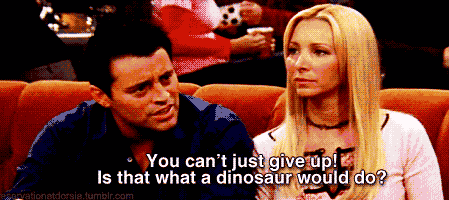As far back as I can remember, being involved in sports has been the driving force in my life.
I loved everything that came with it – the gruelling training sessions, the sacrifices, the teamwork, the camaraderie, the pursuit of a collective goal and the taste of glory at the end.
My love for sports led me to hold captaincy in various sports and at various levels. This extended to various coaching positions from the collegiate to the national level.
While I now find myself tracking a different path – wading in world of startups, and I can’t help but draw similarities between the sports and business.
Here are some of the dots I’ve connected:
Provide Value
Every player in the team has to fight for his/her spot and almost everyone starts on the bench until they have proven their worth – even Messi and Ronaldo indisputably the best players of their generation – spent some time on the bench.

That is to say, unless you’re able to offer something extra or unique to the team, the demand for your services will be of secondary importance.
The same thing applies with starting a business: you will need to have a Unique Selling Proposition. This often comes in 3 main areas: to borrow Michael Porter’s 3 general strategies – cost leadership, differentiation and focused areas. In short, you must be different.
That being said, what doesn’t work in one market may serve a market need in a separate location. For example, in the sporting context, a player deemed surplus to requirements becomes an essential player in a different team.
Along that note, it is essential to be able to know the market demands – you have to know the game.
This brings us to the second point:
Knowing The Game
In college football, preparation for each game was never identical.
Undoubtedly, there are similarities in the fundamental components such as movement of the ball, and the distinction usually lies in the coach’s tactics and strategies to exploit our opponents’ weaknesses and to ensure we avoid playing to our opponents’ strengths.
Victory is possible by knowing your opponents just as well as you know your team.
This translates very well in the business landscape, where, apart from the team (more on this later), knowing your competitors, what you can bring to the table, market trends through past performances, recent performances and projected performances, as well as external factors such as socio-political issues are essential components of a business plan that investors are looking for, as these highlights the potential for success (and hence a higher chance of a windfall return on their investment).
Importance of Mental Tools
“Whatever the mind can conceive and believe, it can achieve.”
– Napoleon Hill
Vision:
Above all, successful athletes and entrepreneurs have extolled the importance of keeping your eyes on the prize – you must constantly remind yourself of your goal, what it means to you, and write down the potential obstacles – so you’re prepared and not paralysed by the unexpected when things don’t go according to plan.
Case in point: Sara Blakely, founder of the multi-billion-dollar company, Spanx, is an advocate of the benefits of visualisation; she once said, “I believe you can take mental snapshots of your future and what success looks like to you. If you mentally see yourself in a scenario, you’ll start to make decisions in your life to get you there.”
Positive Visualisation:
Among the many practices athletes engage in is mental imagery, (swim and track athletes, for example, know what their breathing pattern and their efforts will be like at different time intervals and use that as off-the-pool/track training) and so it follows in business – you must be able to have vision for your business, and you have to be mentally prepared for all plausible outcomes.
In essence, positive visualisation improves your confidence and comfort level, and are necessary tenets in the goal to perform at your best.
Importance Of The Team

Through my involvement in the various sports, be it as a full-back in football, men’s doubles in badminton and 4 x 100m relay team, I have come to appreciate the value each person brings to the team.
My realisation is that a team becomes great as a result of having individuals who are willing to do their job well on the team, being dedicated to the bigger picture as opposed to going for individual glory, and perhaps, more importantly, a team is largely based on being bigger and better than the sum of its parts – a team with a growth-mindset.
“ Venture Capitalists (VCs) aren’t always looking for the next big thing;they’re looking for the next big team.”
Similarly, numerous VC’s and investors have shared their secrets for investing in a startup – it all lies in the people.
In other words: the team.
They look for a company which, apart from their ideas, have a good balance of relevant skills and experience, as well as their ability to work together, and the bond between every member.
It is thus unlikely that a VC would invest in a team that’s made up entirely of businessmen with no technical expertise, or a team filled with computer engineers with no experience in running a business.
Resilience
As I have come to know, being able to bounce back from a mistake or bad game is crucial.
In badminton, every mistake you make elevates your opponent a step closer to victory. In football, missing a scoring opportunity stands you at risk of being blamed for letting the team down.
Picturing yourself making the mistake will only place you on a mental slippery slope, holding you back from giving your best.
Resilience or grit, is the name of the game – it’s how much you can take and keep moving forward. That’s what champions do.

The same goes for every successful business venture. Virgin Founder and CEO, Richard Branson, stated that failure is a necessity in entrepreneurship.
Of course, this involves learning from your past failures and moving on.
Growth Mindset
I was fat and sickly when I was growing up, but I had a dream to make the school’s badminton AND football team.
I was also severely lacking in fitness.
So I started working on it –20 minute runs twice weekly during recess just to up my game. This subsequently led to improvements in other aspects of my game, little by little until I made the team for both sports.
Perhaps a better example is the legendary basketball icon, Michael Jordan, who after being cut from his basketball team in high school, worked immensely hard – and as they say, the rest is history.

Carol Dweck, a psychology professor at the Stanford University, termed the belief that one’s abilities can be developed over time as having a growth mindset.
It turns out that the growth mindset is the secret sauce for successful entrepreneurs, too.
Once they’ve identified their weaknesses, or have been presented with an obstacle, they’ll go out to resolve it. They are also constantly finding ways and room for improvement – I draw similarities to a concept called transient competitive advantage (as opposed to Michael Porter’s sustainable competitive advantage).
Growth mindset engenders continuous innovation and improvement, and a need to to stay ahead of the game.
Numerous well-known companies come to mind – we have Apple, Amazon, Disney and Google, who have adopted a culture that encourages curiosity, being innovative and taking risks we should all take note off.
| Fixed Mindset | Growth Mindset |
| “I’ll never make the team; I’m just not a talented as the others.” | “I’ll make the team if I improve my stamina and ball control.” |
| Finds challenges threatening | Finds challenges exciting |
| Gives up easily | Perseveres |
| Disenchanted with management; do the least necessary | More innovative; more willing to take risks |
| Reacts negatively to criticism | Reacts positively to criticism |
What other lessons garnered from sports have you found useful in business, or vice versa?
I’d love to hear from you (growth mindset, right?)! Now for me to walk-the-walk and adopt these practices in other aspects of my life too.
This article was written by Nur Muhammad Bin Sharifuddin. Feature image provided by the writer.








